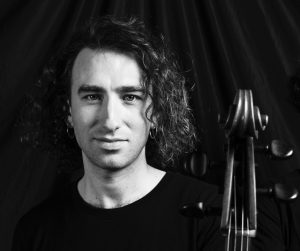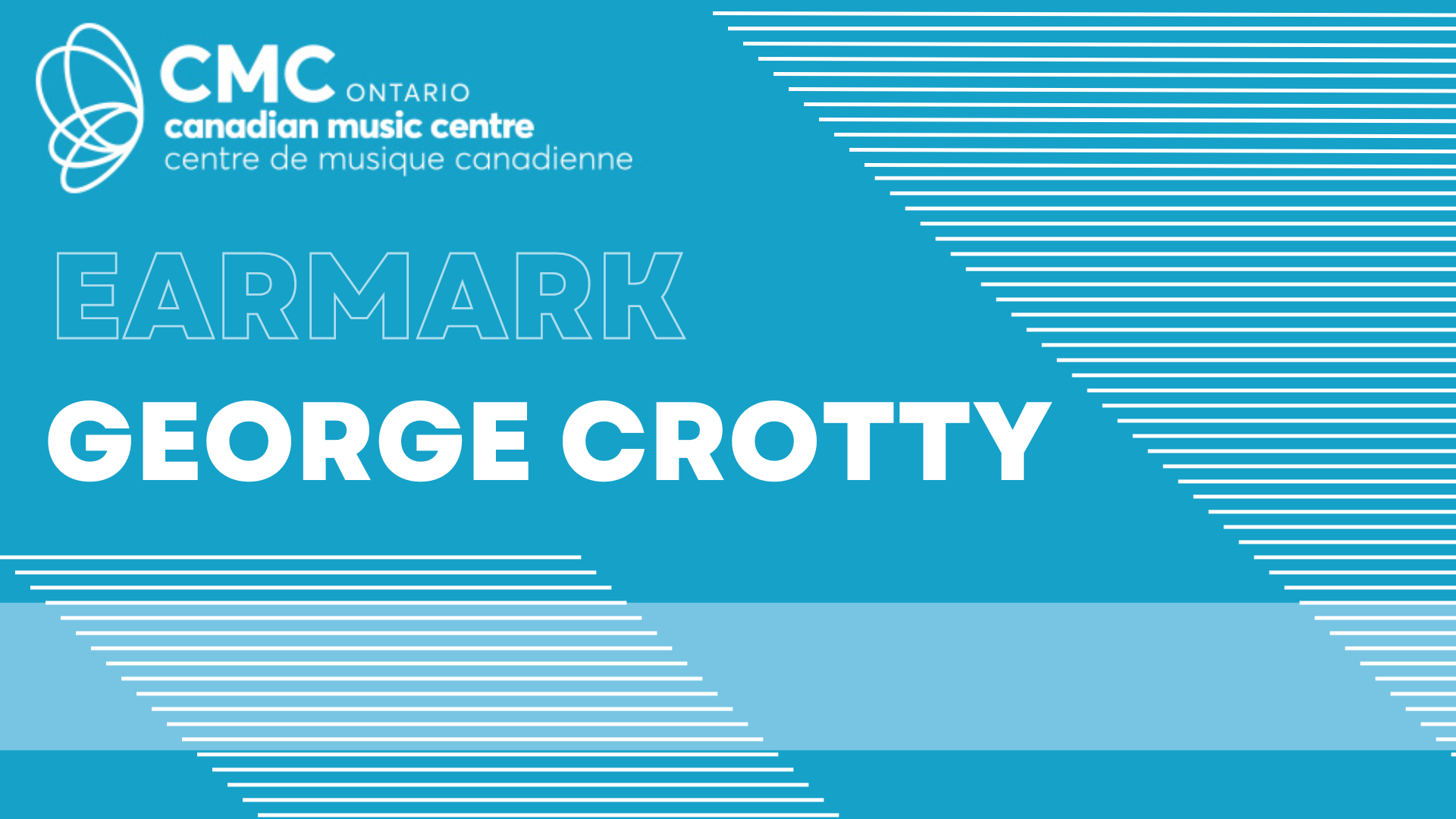In this instalment of Earmark, we catch up with Associate Composer George Crotty about convincing your parents to take music lessons, getting in touch with your roots, and finding your own way in a music career.

CMC: What are your plans as we ease out of the pandemic? How has your form of artistic practice changed (if it has at all)?
George Crotty: I’ve enjoyed the growing pains of developing into what colleagues call a ‘self-represented’ artist. Though I still enjoy freelance performance and recording, I’ve been on an adventure taking my own music listeners through local presenters, festivals, and the bizarre adrenaline-packed world of booking conferences. I’ve typically written for small ensembles, usually featuring a percussive element, or a choir of cellos in a recorded setting. Though circumstances have invited me to begin writing for solo cello, and I look forward to exploring that more this year.
CMC: What got you excited about music at a young age?
GC: I like to think that music picked me, and I was called to play the cello around the age of four. The story goes that I asked my parents to play the cello for about a year before finding me a Suzuki teacher in Toronto. I was accepted to a sacred music highschool, and pursued my B. Mus from a music institution. In a way, a life in music is all I’ve ever known! Music runs deep in both sides of my family, and I think the music found its way out through me. Being of Irish and Ashkenazi descent, I’ve come to understand myself and the world through music from different cultures. The Berklee String Department gave me the knowledge and inspiration to find my own voice and be of service to both colleagues and audiences.
CMC: What is an important music concert/event you attended?
GC: In 2015 I attended the New Directions Cello Festival in Ithaca NY for the first time. The New Directions Cello Festival is an international forum for the exchange of music and ideas. For over a quarter century, they have fostered the growth of the cello in all styles beyond classical music. So it is with great pleasure that I can announce I’ll be performing in my heroes’ footsteps at the 2023 New Directions Cello Festival in Northampton, Massachusetts.
CMC: What have you been listening to lately? Does any of this make its way into your music?
GC: In preparation for a performance in Ireland, I’ve been listening to the music of Martin Hayes. He has drawn inspiration from many musical genres, but remains grounded in the music he grew up with in East County Clare. He has a unique ability to place the tradition within a wider contemporary context, creating a unique and insightful interpretation of Irish music. I am proud to know he grew up about 10km from my family’s town in Co. Clare. I did go and drink some of the water there hoping it might have an effect.
CMC: What is a significant insight that a mentor shared with you that has guided your practice?
GC: American cellist-composer Eugene Friesen used to remind me during my undergraduate studies that following one’s creative voice also eliminates competition. By forging one’s own path, one lessens the need to compare themselves to others who likely don’t share the same destiny, or career aspirations. I had no intention to spend my life practicing excerpts, though friends dream of playing in the Berlin Philharmonic, for example. We don’t always want the same things, but current paradigms condition us to.
CMC: What is the most important lesson you would share with your younger self regarding your music?
GC: Do everything you can to have an unobstructed relationship with your music. Avoid situations that require you to rely on anyone else as a composer, collaborator, or performer. Strive to make the most sheer beauty you can with your own two hands. You are enough.
CMC: Tell me about a project/work of yours that you are particularly proud of.
GC: My trio’s second album ‘Chronotope’ released this past July has been particularly gratifying. Lockdowns drew out the recording process and release. It feels good to have it out in the world, and to be well received. The George Crotty Trio’s second studio album, Chronotope, emerged from a desire to travel through music at a time when travel was restricted. Recorded in Toronto, the new tunes engage in cross-cultural interplay between post-bop, South American grooves, Indian Raga, and Arabic Maqam.

